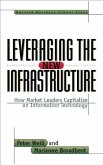The corporate social and environmental responsibility movement, known more generally as corporate responsibility (CR), shows little sign of waning. Almost all large corporations now run some form of corporate responsibility program. Despite this widespread belief that CR can simultaneously improve societal welfare and corporate performance, most companies are largely in the dark when it comes to understanding how their stakeholders think and feel about these programs. This book argues that all companies must understand how and why stakeholders react to such information about companies and their actions. It examines the two most important stakeholder groups to companies - consumers and employees - to comprehend why, when and how they react to CR. Armed with this insight, it shows how companies can maximize the value of their CR initiatives by fostering strong stakeholder relationships to develop, implement and evaluate compelling social responsibility programs that generate value for both the company and its stakeholders.
Hinweis: Dieser Artikel kann nur an eine deutsche Lieferadresse ausgeliefert werden.
Hinweis: Dieser Artikel kann nur an eine deutsche Lieferadresse ausgeliefert werden.
'Leveraging Corporate Responsibility should be required reading in the global C-Suite. It identifies both the psychological levers driving stakeholder behaviour and the business responses that result in loyalty or commitment. The aim is to serve both company and society, maximizing value across the triple bottom line: people, planet and profit.' John Elkington, co-founder of SustainAbility and Volans Ventures; co-author of The Power of Unreasonable People; and originator of the triple bottom line








